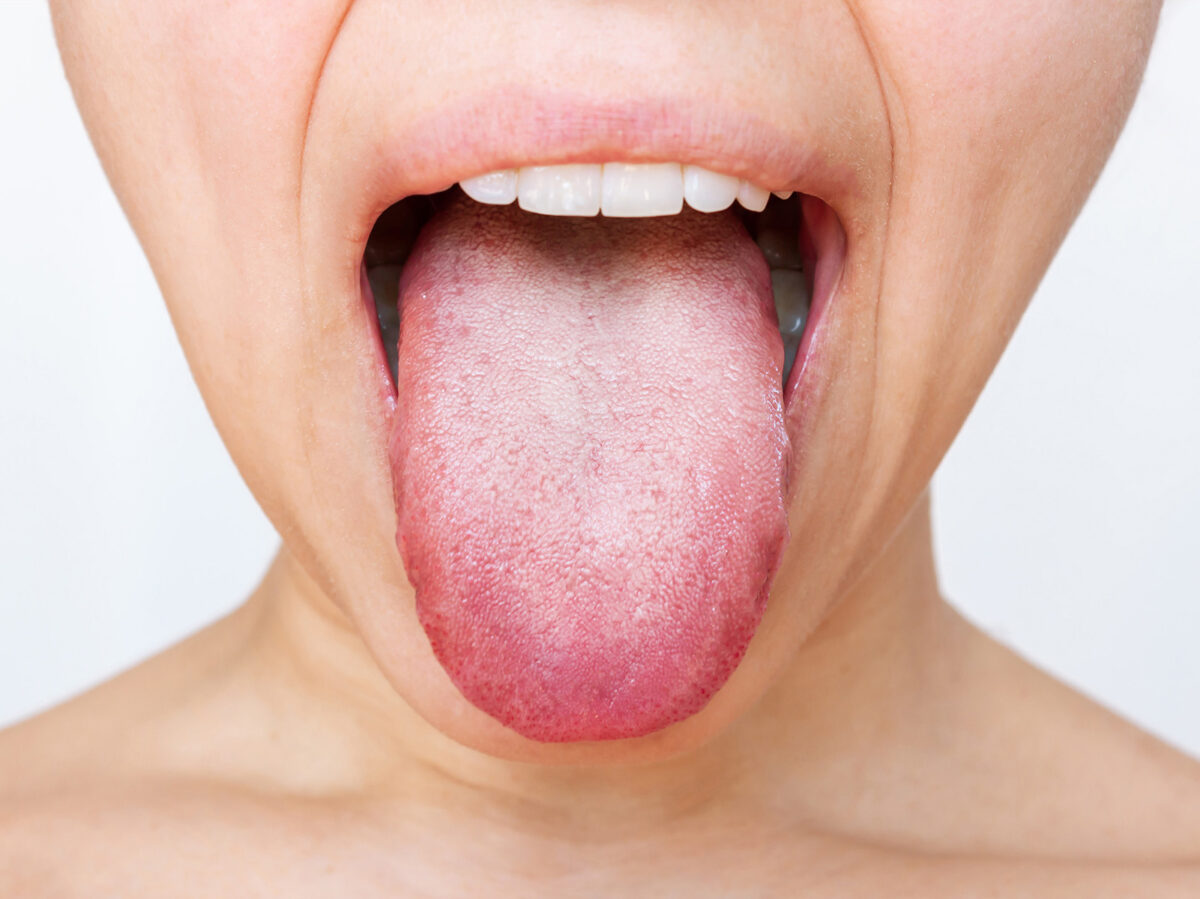Blog
Dental hygiene tips for healthy teeth & gums

What Are The Main Causes of White Tongue?
Did you ever notice your tongue appearing whiter than usual? Generally, our glossa (the Greek name for tongue) or lingua (Latin for tongue) is pink and moist, but it could pale for several reasons. It could indicate that your oral hygiene is improper or you might be dehydrated.
A pale tongue could also be a result of certain medications, and in rare cases, it could signify an infection, underlying skin disorder, or something more serious. The white tongue is also called leukoplakia.
Mostly one should not worry if one notices a white tongue, but it is imperative to seek professional help to check if it is a marker of anything wrong with your overall health. If you want to learn more about this condition, what causes it, and possible treatments, the following sections in this article will tell you all about the white tongue.
What Is A White Tongue?
The glossa’s color can turn to pale along with other features, such as a dry mouth and swollen taste buds, which is evident by finger-like projections or papillae on the glossa’s surface.
- This condition is primarily due to the accumulation of bacteria or debris and dead cells on the tongue.
- This coating can be anywhere on your lingua, on the entire surface, in patches, or only at the rear portion.
- You might also experience bad breath along with a pale tongue.
- It usually clears off within a few weeks, but you would need to see a doctor if it persists.
- Sometimes along with the white tongue, you might get another problem called the black hairy tongue. When this happens, your glossa would appear hairy and dark rather than white.
Common Causes Of White Tongue
The most common cause of leukoplakia is an overgrowth of bacteria or trapped food and debris on the lingua. A few other reasons that can cause this condition are:
- Dehydration or dry mouth – Dry mouth means the production of saliva is low in the mouth. This happens mostly to unwell people with fever, hospitalized people, or those with autoimmune conditions such as Sjögren’s syndrome or lupus.
- Poor oral hygiene – If you do not brush twice a day and floss once or do not scrape your tongue regularly, you might develop leukoplakia. Not maintaining proper dental hygiene results in bacteria buildup on the surface of the glossa.
- Mouth breathing – When you breathe through your mouth instead of your nose, saliva in your mouth can dry up. People with deviated septum or sinus problems usually breathe through the mouth.
- Lingua damage – If you bite your glossa or get hurt by wearing mouth appliances, for instance, braces, you might develop this condition.
- Smoking – Smoking reduces the natural saliva production in the mouth and increases dead cell buildup on the tongue’s surface.
- Excessive alcohol use – Alcohol plays a role in dehydration and causes lower levels of saliva in the mouth, which disturbs the usual balance of bacteria in our mouths.
- Salivary glands dysfunction – Salivary glands can get damaged due to radiotherapy to the head or neck, which in turn reduces saliva production in the mouth.
- Immune function problems – If the immune system is not functioning normally, your mouth gets prone to the buildup of yeast and harmful bacteria. People with diabetes, HIV/AIDS, organ transplants, or those taking immunosuppressant medicines are more susceptible to low immune systems.
- Certain medications – Common medications that can cause white tongue are steroids, antibiotics, antihistamines, antidepressants, and diuretics. These medications either change the balance of bacteria in the mouth (causing bacteria accumulation) or cause low saliva production. In both these situations, one can develop leukoplakia.
Treatment For Pale Colored Glossa
The treatment for this condition varies based on the underlying reason. Generally, pale lingua goes on its own within a few weeks, but if it persists, you must seek medical care. Some home-treatment options for white tongue are:
- Follow basic oral hygiene, which means brushing twice daily for two minutes and flossing once.
- Keep yourself well hydrated by drinking water regularly so that your mouth is always moist.
- Use mouthwashes, cold water rinses, sucking on ice chips, and chewing sugarless gums to enhance saliva production.
- Suppose saliva production does not increase with any of the above-mentioned tips. In that case, you can substitute for saliva with aerosols, gels, gums, and other products that can help replace saliva.
- By improving your diet, you can stay away from leukoplakia. Avoid salty, acidic, or foods and drinks that can lead to dehydration, such as alcohol, tobacco, caffeine, etc.
Conclusion
White tongue condition is generally caused by bacteria buildup or dry mouth, and it is usually a harmless thing. But if this persists for more than a few weeks, talk to your physician, as it could denote some underlying body problems.


